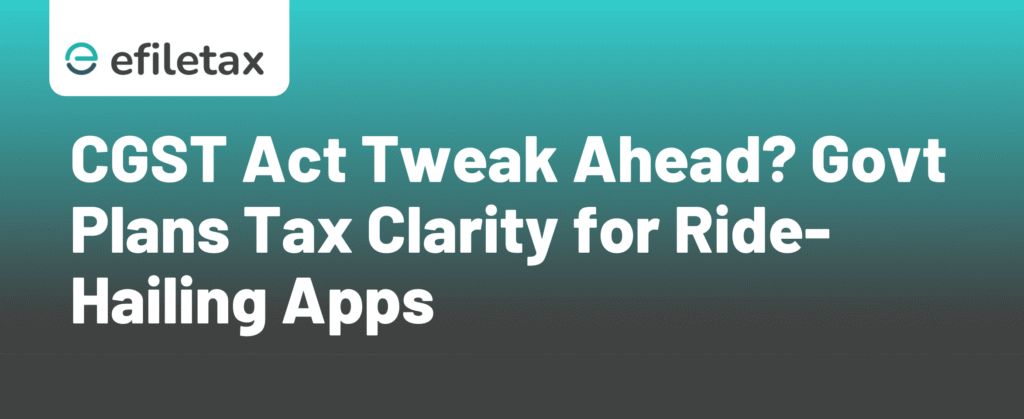
Introduction
CGST Act amendment for ride-hailing firms is in the works, as per official sources. The government wants to remove ambiguity in how GST applies to cab aggregators like Uber and Ola. This move will ensure fair tax compliance and uniform rates for the sector.
Why is the CGST Act Being Amended?
The ride-hailing sector has faced confusion about:
- Who should pay GST — the driver or the platform?
- Different states applying varied interpretations
- Multiple litigations and tax notices
As per Section 9(5) of the CGST Act, the government can specify services where tax must be paid by the e-commerce operator. Ride-hailing services were brought under this provision via Notification No. 16/2021-Central Tax (Rate) dated 18.11.2021.
However, practical issues and frequent disputes have continued.
Proposed Changes: What Sources Say
Key highlights of the expected amendment:
✅ Clear rules on GST liability — making the platform (e.g., Uber, Ola) primarily responsible.
✅ Alignment with Supreme Court and High Court rulings clarifying aggregator obligations.
✅ Consistent tax treatment across states, avoiding double taxation.
✅ Possible revision of GST rate slabs for certain ride categories (like pooled rides vs. single hire).
How Will It Impact Ride-Hailing Firms?
1️⃣ Simplified Compliance:
Platforms will file GST, not individual drivers.
2️⃣ Cost Pass-Through:
Higher compliance costs could be passed to customers as fare adjustments.
3️⃣ Fewer Disputes:
Uniformity reduces the scope for notices and penalties.
Legal Backing and References
- Section 9(5), CGST Act, 2017
- Notification No. 16/2021-Central Tax (Rate)
- Ongoing SC/HC cases on aggregator GST obligations
For official notifications, visit CBIC GST Notifications.
Expert View: One Tip for Aggregators
“Ride-hailing platforms should update their invoicing systems immediately to handle any change in tax collection, to avoid compliance penalties once the amendment takes effect.”
— Efiletax Team
FAQs: CGST Amendment for Ride-Hailing Firms
Q1: Who pays GST for Ola/Uber rides now?
Currently, platforms are liable under Section 9(5) but disputes exist.
Q2: Will fares increase?
Possibly. Platforms may adjust fares to cover extra compliance costs.
Q3: When will the amendment be notified?
Sources say it is under discussion. An official notification will follow Cabinet and Parliament approval.
Key Takeaway (Google Snippet)
CGST Act amendment for ride-hailing firms will clarify GST rules, shift tax liability to platforms like Uber & Ola, and ensure uniform tax rates, reducing disputes.
Conclusion
The proposed CGST Act amendment for ride-hailing firms aims to settle ongoing GST disputes and ensure fair tax treatment for platforms and drivers. Stay updated with Efiletax’s GST blogs for future notifications and compliance guides.